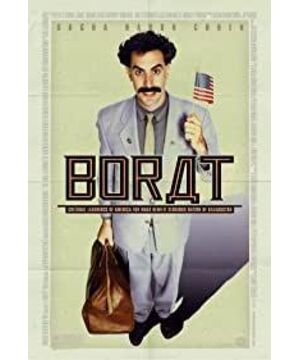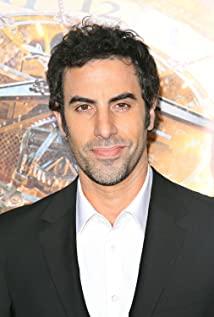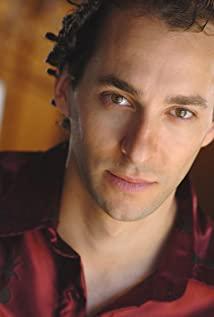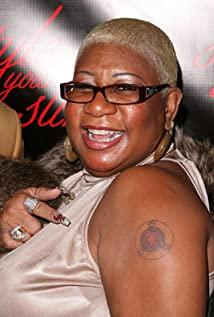Recently, after "Joker" became popular, it was discovered that the original director and screenwriter had also written about this film.
Porat: Learning American culture in order to build a great motherland of Kazakhstan.
Kazakhstan, United States.
One is a landlocked country in Central Asia, with backwardness and tradition as its label; the other is a powerful country in North America, with advanced and civilization as its representatives. When two seemingly unconnected countries collide with each other, the joke will come.
The beginning of the film outlines the style of Porat’s hometown with a few chats: Porat’s sister is the fourth-ranked prostitute in the country, and his mother is only 43 years old but looks like 63 years old, and is the oldest woman in the village. ...In the village, there are rapists who treat horses as their wives, there are roadside children holding submachine guns, and cars powered by cattle.
As the sixth-ranked host of Kazakhstan, he followed the instructions of the Ministry of Information of Kazakhstan to visit "the most powerful country in the world-the United States" with the fat producer Azamat to produce a documentary.
After arriving in the U.S., Porat was worse than Grandma Liu who entered the Grand View Garden: he took a hen on a rampage, kissed people on the street, washed his face with the toilet, urinate and defecate in the flowerbed by the roadside, in the river. Washing underwear, obsessed with and pursuing porn stars... He despises women and the mentally handicapped, and is hostile to homosexuals, Jews and Gypsies. He is like a clown jumping up and down, with the backwardness of Kazakhstan, and disrupting the civilized and free America. Jump, using sincere ignorance and American etiquette taboos and orthodox ideas to hit sparks, full of laughter.
In this way, the film seems to be a bitter satire of Kazakhstan. But it is not.
The film adopts a pseudo-documentary shooting method, which confuses the boundary between recording and fiction. This type of film can be traced back to Lumiere's creation during the film's birth, and his film has begun to expose the mechanism of photography. Later, he was carried forward by Godard during the New Wave. Godardo adopts the film-in-film model, using the ambiguity of record and fiction to show the nature of the media from fiction to deception, and reveals the deception of the capitalist media to the audience.
Since then, this technique has been borrowed by genre films. For example, the Japanese movie "Guinea Pig" was also prosecuted. The audience mistakenly believed that someone was actually killed in the film. Its high degree of realism also caused FBI investigations. Compared with the previous film's "revealing falsehood" approach, this film has carried out a newer experiment: revealing the truth.
Every person Porat met on the streets of the United States, every person interviewed was a real person, and what the camera recorded was the reaction of their real answers. During the filming, the interviewees thought that Porat was really a foreign journalist who did not understand American customs, and did not know that he would appear in the film. In other words, everything is true, except for Porat, and the country he is from Kazakhstan.
The description of Kazakhstan in the film has nothing to do with the country-the government of Kazakhstan has already bought a large-scale clarification on Time Magazine. The Kazakh language spoken in the film is actually Romanian and Iranian, while the spelled Kazakh language is completely nonsense. And Sasha Byron Cohen, who plays Porat, is actually a well-known American talk show host. He himself is a Jew, and Porat is the person he created on the show. In other words, "Borat" borrowed a place called "Kazakhstan" and borrowed a fictional person called "Borat" to show the real America and the real American people. .
Therefore, he mocked the United States.
The America that Porat met has no dreams. Although Porat made all kinds of disdainful behaviors, he didn't know it. He was full of curiosity about the world in his eyes, without prejudice, and without malice.
On the contrary, it was the Americans he came into contact with—feminists who looked down on prostitutes, youths who fantasized about women slaves, managers who recognized that homosexuality should be hanged, and the American people who cheered when he declared that he supported the "war on terror" in the United States. The disadvantaged groups-prostitutes, blacks, homosexuals, have expressed their friendship to him.
Porat used rough and gravel lens language and vulgar and vulgar jokes to thoroughly humiliate the United States for its "false justice, false human rights, and false morality." The most ironic thing is that the manager who agreed to "homosexuals should be hanged" at the Cowboy Conference in the film sued "Borat" for malicious slander after the film was released.
In addition, it is reported that during the entire film production process, Porat’s erratic behavior led to 91 alarms. But no one doubted his identity, and no one revealed that it was just a farce. And this is just because the United States doesn't understand Kazakhstan, just as the Americans believed that everybody in China can fly over the wall a few years ago.
Porat ruthlessly shredded the American hypocrisy and arrogance.
At the end of the film, Porat seemed to wake up: I learned that if you chase a dream, especially a person with a plastic fake breast, you will miss the real beauty in front of you. "Plastic fake breasts" are the porn stars he pursued in the previous article, referring to the mainstream American values. The superficial sounding is actually hypocritical; the "real beauty in front of you" is the acceptance of the black prostitutes of Porat, which is regarded by the mainstream American values. The marginalized crowd of exclusion. Han Han also likes this movie very much. The "Song of Dongji Island" in "Afternoon" is written by him using the ending song of the film. This is indeed a good film. Some people have seen pungent ridicule, some have seen all kinds of doctrines, some have seen cultural conflicts, and some have only seen "shit piss". What about you, what do you see?
This article was first published in the public account
View more about Borat: Cultural Learnings of America for Make Benefit Glorious Nation of Kazakhstan reviews











